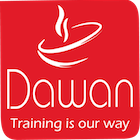Goals
- Understand the interest of the DevOps movement
- Install Salt
- Use Salt to execute orders on a fleet
- Write SaltStack reports to manage the IS
- Master best practices and ensure consistency of the IS with SaltStack
Program
The origin of the DevOps movement
The need for industrialization for operations Overview
of tools
Positioning of SaltStack in the current landscape
Origin of the project
Architecture: masters and servants (master / minions)
Dependencies, and basic configuration
The commands integrated in salt
Practical workshop: install the master and the servants on the nodes, test the controls
Presentation of SLS and YAML
files Organization of files: main file (top file), dependencies and inclusions
Basic resources and modules (user, service, pkg, etc.)
Execution of reports on servants
Practical workshop: writing the first Salt reports, deploying a Web server and a personalized page on « minions »
Discover grains, configure and add variables
Manipulate grains in reports to refine the configuration
Using models in reports with Jinja
Grains and models for files
Store information with Pillar
Practical workshop: manipulate basic grains, add data with Pillar, create configuration files and model reports
Using global or regular expressions
Via grains
Using user variables stored in Pillar
Other methods: by IP, compound expression,
Orchestration groups , job execution
Hands-on Workshop: Using Custom Grains and Pillar to Deploy Front End and Support Servers with Salt, Execute Commands Sequentially
Duration
5 days
Price
£ 2396
Audience
System administrators
Prerequisites
Have followed the Linux training: system administration (databases + services), or have equivalent knowledge
Reference
DEV100373-F
Setting up a Salt solution
Configuration of different environments
Presentation of groups
Presentation of gitfs
Practical workshop : Setting up several environments
Presentation of Salt-ssh
Configuration of a
Masterless roster and raw mode of Salt-ssh
Manage the installation of salt-minion agents with salt-ssh
Hands-on workshop : Creating a bootstraping role using Salt-ssh
Define the challenges of orchestration
Use of ‘orchestrator’ within the framework of an application
Schedule executions with the schedule module
Practical workshop : Deploying an application with orchestrator
Definition of Continous Delivery and Continous Integration
Presentation of the gitlab tool
Modeling roles with cookiecutter
Practical workshop : Creating an industrialized role with cookiecutter
Presentation of beacons
Presentation of reactors
Administer salt with salt-runners and jobs
Presentation of Multi-master mode
Sessions
Contact us for more informations about session date

